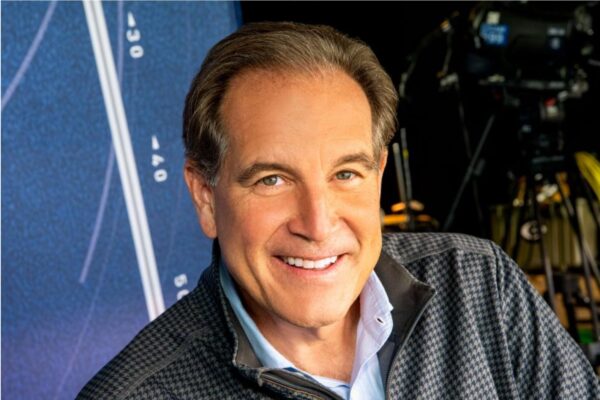By Daniel Marco
Sports Capital Journalism Program
HOUSTON — Full Court Press, an annual sports writing seminar and scholarship competition organized by the United States Basketball Writers Association, gave students interested in a career in sports writing exclusive experiences at the NCAA Men’s Final Four with athletes, coaches, and professional journalists on Friday.
The event began with a panel discussion featuring Pat Forde from Sports Illustrated plus Dana O’Neil and Brendan Quinn of The Athletic. For more than an hour, the speakers touched on topics ranging from how to conduct interviews to the future of the industry.
In a job field that is always changing, having passion for your subject matter is more crucial than ever, according to Forde.
“We’re really looking for people with enthusiasm, who have curiosity for their subjects and a motor to succeed,” Forde said. “We want people who want to be here and show up early, and are maybe willing to cover stories that they initially don’t want to cover.”
For the student journalists attending the seminar, developing their writing craft is also an important step to furthering their careers.
“My biggest advice is to read things that aren’t just sports writing,” Quinn said. “Read fiction. Get a magazine subscription. Read with purpose. When you’re reading, always be thinking about why a quote is where it is, what the lead is, and notice the different transitions used in the piece.”
Another critical sports writing skill is learning how to interview subjects, something the panelists discussed extensively.
“We’re all bad at interviewing at first,” Forde said. “The key is to ask short, open, neutral questions. And keep in mind, you’re not trying to demonstrate your knowledge, you’re trying to get information from your subject. And most importantly, never ask yes or no questions or two-part questions, because then they never answer the first part.”
O’Neil added: “You really want to develop your rapport with a person over time. Don’t talk to people just because you want information from them. Build up your relationships with people. Have a conversation with someone off the record without bringing a notepad. Sometimes the best job you can do is not do your job for a while.”
Despite the dwindling prospects of newspapers and the prevalence of breaking news over Twitter, O’Neil still feels there is a future for longer form sports writing.
“The line between good writing and random information that comes up on Twitter seems like it’s dwindling, but I still think there’s a place for good, intelligent sports writing,” O’Neil said. “Hopefully there will always be places for people who convey information in an entertaining and compelling way.”
One of the most beneficial parts of Full Court Press is the scholarship program, named after former USBWA president and Hall of Fame member Larry Donald. Students covering the practices and press conferences before the national semifinal games will submit stories for scholarships of $1,500, $750 or $500..
After the panel, the attendees were able to ask questions in an exclusive interview with the coaches and student-athletes from each Final Four team. They attended practices at NRG Stadium and received access to dressing rooms for additional interviews. The students found the Full Court Press program to be a beneficial and worthwhile experience.
“It’s so surreal to be here,” Emily Hutchinson, a first year from The University of Texas at Austin, said. “You see these players on TV, but once you get speak with them in person, you truly realize how big the stakes are. It’s been so exciting to hear their thoughts and get to talk to them.”


